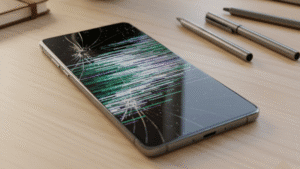In the age of smartphones, our devices hold a wealth of sensitive personal information, from private messages and contacts to photos, browsing history, and financial details. With the increasing reliance on smartphones for communication, shopping, and entertainment, ensuring mobile phone data security has become a pressing concern for many users.
As leaders in mobile phone repair operating in South Australia Adelaide since 2002 and specializing in all major brands and models, we understand the importance of safeguarding your personal information and privacy when it comes to using smartphones.
In this comprehensive guide, we aim to equip you with essential data security tips and best practices that will protect your personal information and privacy on your mobile phone. From creating strong passwords and enabling security features to backing up data and employing VPNs, this guide will provide a valuable resource to ensure that your mobile phone data remains secure and that you can use your device with confidence.
So, let’s delve into these essential mobile phone data security tips designed to empower you to protect your personal information and privacy, giving you peace of mind as you navigate the digital world with your trusted device.
1. Create Strong Passwords and Enable Security Features
The foundation of mobile phone data security begins with creating strong, unique passwords for your device and accounts. Implement these tips to create and maintain secure passwords:
– Length and complexity: Use a combination of letters, numbers, and special characters, with a minimum of 12 characters, for optimal password strength.
– Avoid predictable patterns: Steer clear of easily guessed sequences, such as “123456” or “password”, and refrain from using personal information, like birthdays or names.
– Enable biometric security: Opt for fingerprint or facial recognition security features, if available on your smartphone.
– Update passwords regularly: Change your passwords every three to six months to reduce the risk of unauthorized access.
2. Secure Your Network and App Connections
Protecting your mobile phone data includes securing your network and app connections. Follow these tips to safeguard your personal information:
– Use secure Wi-Fi connections: When connecting to Wi-Fi, opt for trusted, password-protected networks and avoid public, unsecured hotspots.
– Implement a VPN: Virtual Private Networks (VPNs) encrypt your internet connection, shielding your personal information from hackers and spies.
– Update apps and software: Keep your mobile phone’s operating system and apps updated to receive security patches and protect against vulnerabilities.
– Review app permissions: Regularly assess app permissions and revoke unnecessary access to sensitive information, such as your location or contacts.
3. Back Up Your Data Regularly
Backing up your mobile phone data plays a crucial role in securing your personal information and can save you from data loss due to device failure, theft, or accidental deletion. Implement these backup strategies:
– Choose a secure backup method: Opt for a secure cloud storage service or use your smartphone manufacturer’s recommended backup software.
– Backup frequency: Schedule backups to occur automatically, and perform manual backups when making significant changes to your data.
– Encrypt backups: Secure your backups by enabling encryption settings on your backup service or software.
– Test your backups: Periodically restore backed-up data to ensure the integrity and accessibility of your backups in case of an emergency.
4. Stay Vigilant Against Phishing Attacks and Scams
Phishing attacks can deceive even the most security-conscious individuals. Protect yourself against scams and ensure your personal information remains secure with these tactics:
– Verify email and text sources: Scrutinise the sender’s address and look for any discrepancies to recognise potential phishing attacks.
– Avoid clicking links: When receiving an unexpected, suspicious email or text message, avoid clicking on links or downloading attachments. Instead, visit the website directly or contact the company via official channels.
– Use multi-factor authentication (MFA): Enable MFA for your accounts, as it adds an additional layer of security beyond a simple password.
– Install a security app: Employ a reputable security app to help detect phishing attempts and malicious websites.
Safeguard Your Personal Information and Privacy with Mobile Phone Data Security Best Practices
By following these essential mobile phone data security tips, you can significantly enhance the protection of your personal information and privacy. Remember that as digital threats continue to evolve, staying informed about security best practices and adjusting your habits accordingly is of utmost importance.
If you have any concerns about the security of your mobile phone or need assistance with device issues, our experienced team at Digimob Phone Repairs is here to help. With decades of expertise in all major smartphone brands and models, we can provide you with professional advice and trusted mobile repair in Adelaide, ensuring your mobile phone data remains secure and protected.



